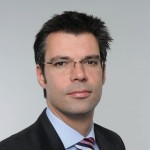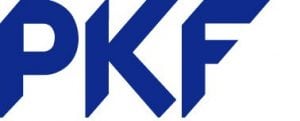Looking for a qualification to open doors, Mark Donnelly opted for the ACA. He discusses working with Chris Evans, football in recession and gives tips to budding sporting accountants.
Why the ACA qualification?
I chose the ACA because it provided an excellent qualification and offerred opportunities and flexibility after qualifiying. I studied some accountancy units as part of my degree and had some work experience and intern work during holidays. The investment and training by each of the major accountancy firms also looked extremely good.
Was your childhood ambition influenced by sport?
I played a lot of football and would have loved to be a professional footballer. I realised that wasn’t going to be possible – numbers came easier – and I chose a career in business. I studied economics at university and liked the idea of getting a good additional qualification that would open up a wide range of options, so I joined KPMG.
What was your first senior role?
I joined Virgin Radio as financial controller and progressed to finance director. It was soon after Chris Evans had acquired the group and was probably one of the best times of my working life. Chris was at the height of his popularity and the media market was booming. It taught me a lot, including how to deal with the unexpected. One day Chris went on air and announced we were giving away £2 million, which certainly was not in any plans!
What do you enjoy most about working for The FA?
It’s steeped in history and everything that goes with the national team. I’m based at Wembley and enjoy the walk up every day – it’s inspiring. It’s a diverse and complex organisation, there’s a lot more to it than you realise. For someone who is passionate about football, the chance to be involved and to feel like you can make a difference to sport is a big opportunity.
What challenges do you face?
The FA gets a lot of press and scrutiny. I’m under no illusions of the importance of doing the right thing and making good decisions.
How has the recession impacted The FA?
All events and venues are affected, not just Wembley and England games. Attendances are under some pressure, so organisations are keenly aware of ticket prices and companies are watching what they spend. We’re not immune, but we’ve got good protection over short-term markets.
What are you most proud of?
Being part of the team that opened the O2 arena. There was a lot of pressure – it had a chequered history – so it had to be right. The celebration after Bon Jovi’s first night was brilliant. It was great to open the building but it was only the first step.
What makes a good CFO?
They have to be really involved in the business and make sure that the finance function is at the heart of many decisions. Where it’s interesting and where you can make the most difference is the business partner side of it: challenging the business and helping to make better decisions.
What’s your biggest bugbear?
I don’t like missing deadlines or delivering something that’s not good enough. If we say we’re going to deliver something, we deliver it. It’s about reliability and people feeling important.
What motivates you?
I’m hugely motivated by the opportunity to work in football. I want to make a real difference.
Do you have any tips for working in finance in major sporting organisations?
The key is to get the best experience you can and get a strong CV. Relevant experience is obviously valuable, but being able to demonstrate a good understanding of the unique issues of working in sporting bodies as well as strong commercial skills is a must.
Reproduced/adapted with permission from economia, March 2012.



